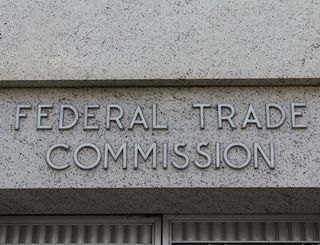Warner Bros. Settles FTC Game Promotion Complaint

Warner Bros. has settled with the Federal Trade Commission over charges of deceptive marketing of its Middle-earth: Shadow of Mordor video game for PlayStation 3 and Xbox 360.
The FTC alleged that Warner Bros. Home Entertainment, "through its advertising agency Plaid Social Labs," had paid thousands of dollars to online "influencers," including PewDiePie, for positive online reviews of the game without sufficiently disclosing they were paid reviews by placing disclosures in a conspicuous place.
The FTC vote to accept the settlement was 3-0. There was no civil penalty, but if Warner Bros. violated the agreement, there could and likely would be.
The FTC says the sponsored reviews were viewed more than 5.5 million times and promoted on Facebook and Twitter.
According to the complaint, Warner Bros. paid the "reviewers" hundreds to thousands of dollars, gave them free pre-release copies of the games and told them how to promote it, including to keep the reviews positive and not to mention any bugs or glitches.
Warner Bros. did include disclosures, but the complaint says the company told reviewers to place the disclosures "below the fold," in a box with other required information and only if the "show more" button were clicked. In addition, when the videos were posted on YouTube or Facebook, the "show more" button was not included.
In some cases, the disclosure was only that they had received an early copy, not that they had been paid to talk it up.
Broadcasting & Cable Newsletter
The smarter way to stay on top of broadcasting and cable industry. Sign up below
The FTC also says Warner Bros.’ contracts with its influencers required pre-approval, and that on at least one occasion Warner Bros. vetted a video with inadequate disclosure.
According to the settlement, Warner Bros. can still sponsor reviews, it just has to make sure consumers know they are paid plugs, not independent opinions of gamers or fans.
Warner Bros also agreed to a compliance and education regime that includes "educating influencers regarding sponsorship disclosures, monitoring sponsored influencer videos for compliance, and, under certain circumstances, terminating or withholding payment from influencers or ad agencies for non-compliance."
“Consumers have the right to know if reviewers are providing their own opinions or paid sales pitches,” said Jessica Rich, director of the FTC’s Bureau of Consumer Protection, in announcing the settlement. “Companies like Warner Brothers need to be straight with consumers in their online ad campaigns.”
“Warner Bros. Home Entertainment always strives to be transparent with our customers and fans when working with social influencers, and we are committed to complying with the related FTC guidelines,” the company said in a statement.
(Photo via John Taylor's Flickr. Image taken on Aug. 14, 2014 and used per Creative Commons 2.0 license. The photo was cropped to fit 3x4 aspect ratio.)
Contributing editor John Eggerton has been an editor and/or writer on media regulation, legislation and policy for over four decades, including covering the FCC, FTC, Congress, the major media trade associations, and the federal courts. In addition to Multichannel News and Broadcasting + Cable, his work has appeared in Radio World, TV Technology, TV Fax, This Week in Consumer Electronics, Variety and the Encyclopedia Britannica.

